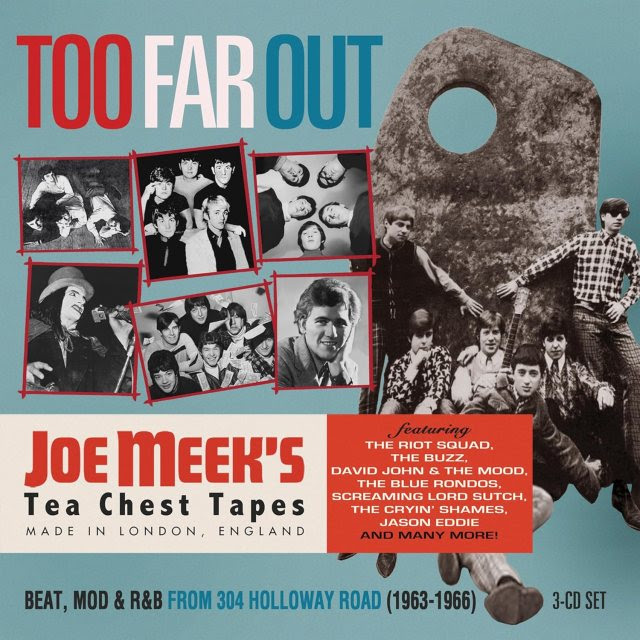 That Joe Meek has been called the U.K.’s answer to Phil Spector is understandable. Both were producers who worked in the 1960s, and both favored sound effects and employed innovative techniques. Both also committed murders and came to sad ends.
That Joe Meek has been called the U.K.’s answer to Phil Spector is understandable. Both were producers who worked in the 1960s, and both favored sound effects and employed innovative techniques. Both also committed murders and came to sad ends.
But there were important differences between the two. Though Meek scored several major British and American hits, such as the Honeycombs’ “Have I the Right?” and the Tornados’ “Telstar,” he was not as commercially successful as Spector. Moreover, his work is arguably less formulaic than Spector’s and even more experimental and diverse. You can usually spot the American producer’s trademark Wall of Sound a few seconds into one of his so-called “little symphonies.” But Meek dabbled in a wide variety of styles, including pop, rock, surf music, psychedelia and more, and his handiwork yielded more disparate results.
He may also have been more prolific than Spector. At least it seems so in retrospect, now that England’s Cherry Red label has been digging into the vaults and releasing boxed sets in a series called Joe Meek’s Tea Chest Tapes. (The name reflects the fact that the producer stored the tapes in tea chests.) The record company acquired nearly 2,000 reels containing over 4,000 hours of music—virtually all of it untouched for more than 50 years. Previous releases from the series have included two three-CD multi-artist anthologies, Do the Strum: Girl Groups and Pop Chanteuses (1960–1966) and From Taboo to Telstar—1962: A Year in the Life of 304 Holloway Road. (The title references the address of the producer’s home studio.) Another collection, called Please Stay, focuses solely on the Cryin’ Shames, a Meek-produced group whose discography is far more impressive than its minimal commercial impact would suggest.
Related: Read our review of Do the Strum
Now we have another Meek compendium, this one called Too Far Out: Beat, Mod & R&B from 304 Holloway Road (1963–1966). All but two of the 88 tracks on the three-CD, four-hour anthology come from the Tea Chest archives. Like its predecessors, this collection, released in February 2025, incorporates a well-illustrated booklet that includes biographical information about all its nearly four-dozen featured artists.
Though the clamshell-boxed set includes a few minor British hits, such as the Cryin’ Shames’ “Please Stay” and a couple of familiar group names, this is not primarily a collection of chart tunes. Far from it. The selections in the compendium—all of which have been restored and newly mastered—consist mostly of obscurities. Many are previously unreleased songs or alternate takes of little-known tunes, and others aren’t known even a little. A song called “Land of Shame” is credited to “Unknown Group #1,” while an audition tape of a cover of Ray Charles’ “What’d I Say” is performed by “Unknown Group #2,” and two other numbers are the work of “Unknown Group #3.”
Inevitably, perhaps, in an anthology this large and diverse, the program is uneven. It embraces silly novelties like “Jack the Ripper,” by Screaming Lord Sutch and the Savages, and forgettable covers such as the Syndicats’ reading of Chuck Berry’s “Maybellene” and a high-octane but unsatisfying reading of “Singing the Blues” by Jason Eddie and the Centremen.
Tracks you’ll likely want to hear multiple times predominate, however. They include the caffeinated “She’s Too Way Out,” by Tony Dangerfield and the Thrills, with a piano that sounds a bit like Jerry Lee Lewis; and the Dowlands’ “Someone Must Be Feeling Sad,” which could be mistaken for an overlooked Everly Brothers standout. Noteworthy, too, are three tracks from the Riot Squad: a soulful cover of Curtis Mayfield’s “Um, Um, Um, Um, Um, Um,” as well as “I Take It That We’re Through” and “Who’s Fooling Who,” which combine assertive vocals with punchy garage-rock instrumentation.
Also excellent are a brassy, well-sung cover of Ray Davies’ “Something Better Beginning” by the Honeycombs and a reading of Allen Toussaint’s “A Certain Girl” by the Checkmates (not to be confused with the identically named American group that had a hit with the Spector-produced “Black Pearl”). That the Blue Rondos’ catchy “Little Baby,” “What Can I Do” and “Don’t Want Your Loving No More” weren’t commercially successful is almost worthy of inclusion in Ripley’s Believe It or Not, as all are on par with many of the British Invasion numbers that scored big in the States. The Beat Boys’ “A Little Loving,” from 1964, also sounds as good as lots of hits from that year.
Too Far Out: Beat, Mod & R&B from 304 Holloway Road (1963–1966) is available in the U.S. here and in the U.K. here.

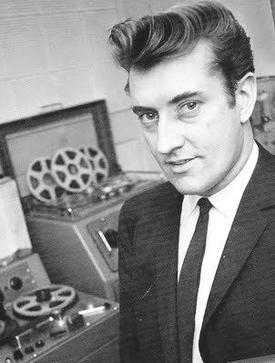
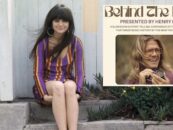
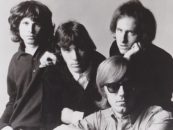
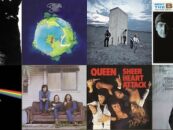


No Comments so far
Jump into a conversationNo Comments Yet!
You can be the one to start a conversation.